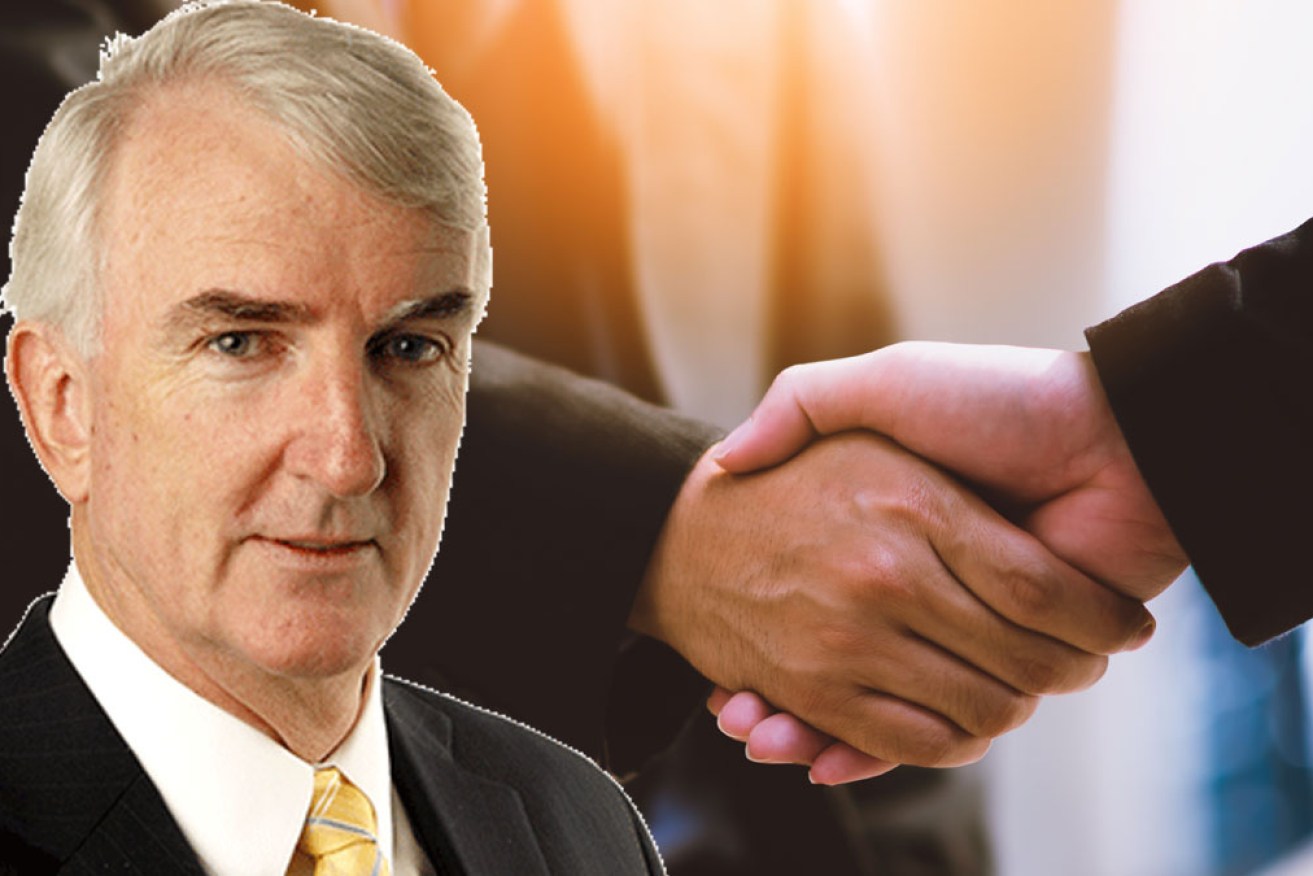Michael Pascoe: Vast majority of economists want increased compulsory super contributions


The move to confirm superannuation guarantee rises in July is far from settled. Photo: TND
The compulsory superannuation debate often fits the “lies, damned lies and statistics” observation of an unknown 19th century wordsmith. (No, Mark Twain didn’t coin the phrase.)
Now we are more likely just to wonder how anything is being spun, or perhaps realise “the answer you receive often depends on where you stand when you ask the question”.
For example, The Conversation’s survey of Economics Society members sees the headline outcome as two-thirds of economists oppose the next increase in compulsory superannuation contributions.
I see the survey finding that three-quarters of economists think the present 9.5 per cent compulsory super contribution should be increased.
Same survey, a rather different reading, but both correct.

Scott Morrison and Josh Frydenberg are yet to reveal what will occur. Photo: AAP
The interpretation matters because various government backbenchers and the business lobby are waging a campaign against the phased-in increase in compulsory super that is supposed to start next July, the contribution rising from 9.5 to 10 per cent as the first step towards an eventual 12 per cent.
Some of the backbenchers are concerned about the cost to employers battered by the recession.
Some of them just don’t like compulsory super anyway and especially dislike industry super funds.
The clock is ticking and the government has been sitting on the report of the Retirement Income Review it commissioned for more than a month now. That inevitably invites speculation that the review must contain recommendations that are politically difficult.
Thus far, Prime Minister Scott Morrison has tiptoed around the superannuation issue – but it’s not going away.

The Coalition’s government’s strategy could have major implications for the retirements of many Australians.
With that background, the economic debate about the wisdom or folly of increasing compulsory super has at times become heated, further complicated by a school of thought that our superannuation scheme is far too expensive and should be scrapped anyway.
The Conversation’s survey of 44 economists found 13 believed compulsory super should be increased as planned, while nine thought the increases should be abandoned.
The biggest group – 20 of them – wanted an increase, but not just yet, preferring that it be deferred given the state of the economy.
And two economists registered perhaps the most honest answer: They were uncertain about what should be done.
As we’ve previously reported, the economic argument has been fought most publicly by two think tanks, the Grattan Institute and Per Capita, but matters have been complicated by the recession.

Liberal MP Tim Wilson has been a vocal opponent of industry super. Photo: AAP
At the Reserve Bank’s visit to the House of Representatives economic committee on August 14, the committee chairman and devoted enemy of industry super, Tim “Franking Credits” Wilson, worked hard to push RBA governor Philip Lowe into a corner about the impact of increased super on employment.
Dr Lowe eventually conceded: “There will be less current income. If there’s less income there may be less spending, and if there’s less spending there may be fewer jobs. That’s a whole sequence of chains that have to work out, but it’s certainly possible. As has always been the case with superannuation, it’s a trade-off between current income and future income.”
The possibility concerns many of the surveyed economists, but there’s also often a difference between what economists think should theoretically happen and what the real world decides.
An obvious example is the company tax modelling beloved by the government, the Business Council of Australia and the two national daily newspapers.
According to a computer program somewhere in Treasury – perhaps running on a Commodore 64 – cutting company taxes will increase wages.
This is at odds with the real-world experience of what happens when company tax rates are cut, but that doesn’t bother those with unwavering faith in trickle-down economics.
Before the ’rona recession hit, the core theoretical argument against increasing compulsory super was that it would come at the expense of wage rises. The theoretical types overlooked that businesses weren’t giving real after-tax wages rises anyway.
As indicated by the biggest group of economists wanting the increase deferred, the recession has changed what the real world looks like.
What nobody can know though is the extent to which the real world next year is likely to see capital not give or grant wages increases whether or not there is an increase in super.
Of the surveyed economists, the one with perhaps the most real-world experience about how wages work is Sue Richardson, who used to be on the Fair Work Commission’s wages panel.
Professor Richardson was in the group recommending the increase goes ahead. Among her reasons: “It is unlikely that there would be an equivalent rise in wages should the increase be deferred.”
She also thought that, once a rise is deferred, it becomes hard to recoup.
The reality is that high unemployment and underemployment for at least the next two years will make real wage increases hard to come by with or without a super increase.
The combination of minimal wage increases, high unemployment and underemployment will keep consumption weak, which reduces profits and feeds business uncertainty which will mean the 18-month trend of falling private capital investment will continue. This damages productivity growth and the ability to pay higher wages even if business wanted to.
Of greater importance than a super rise to the economy next year is whether the government will get serious about filling the investment and demand void.
So far, there’s no sign of it. As long as that’s the case, handwringing over the impact of increased super, a la Tim Wilson and associates, is specious.
And those two economists who fell in the “uncertain” category are right.
The New Daily is owned by Industry Super Holdings








